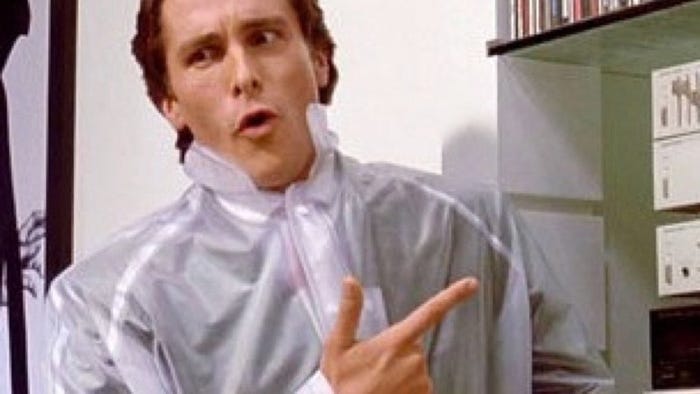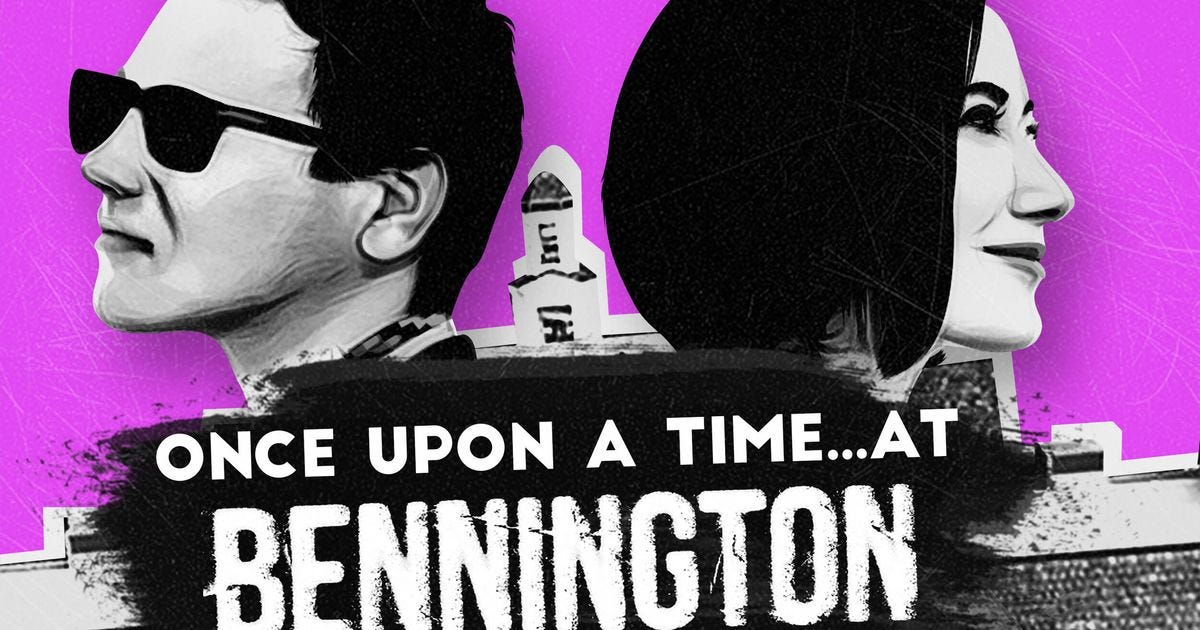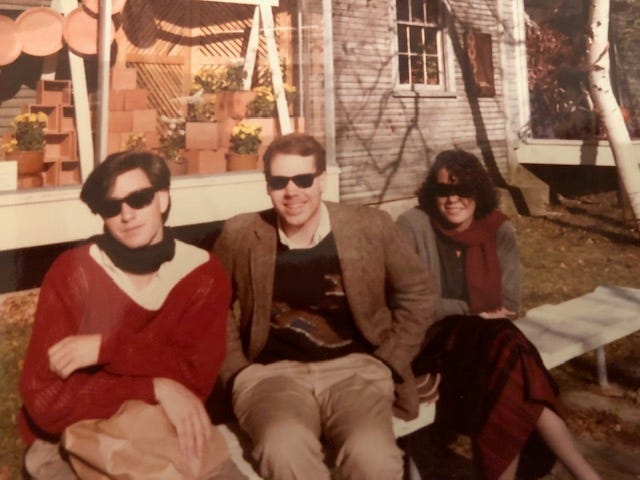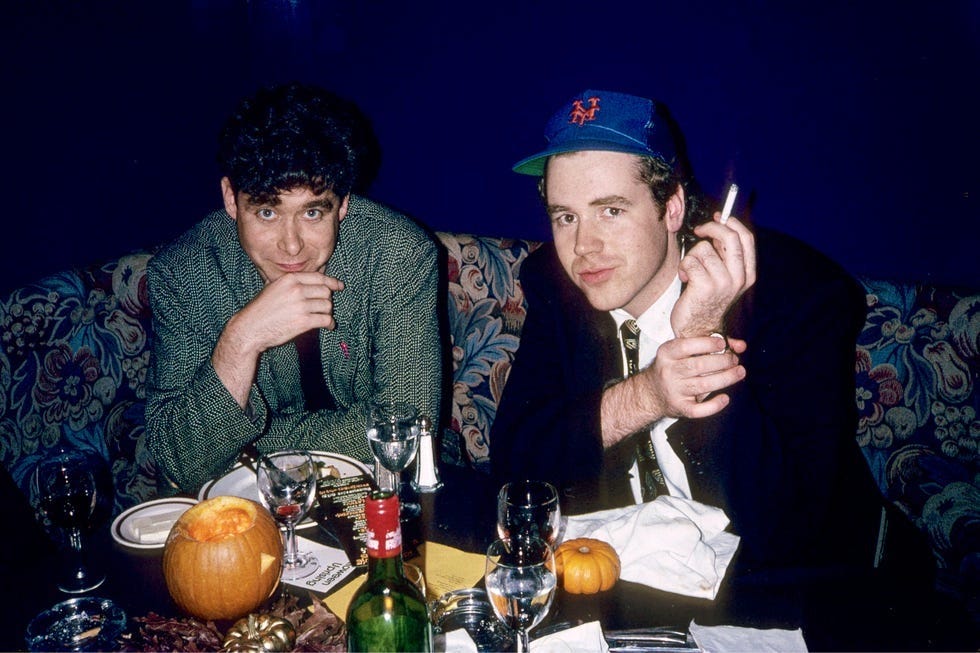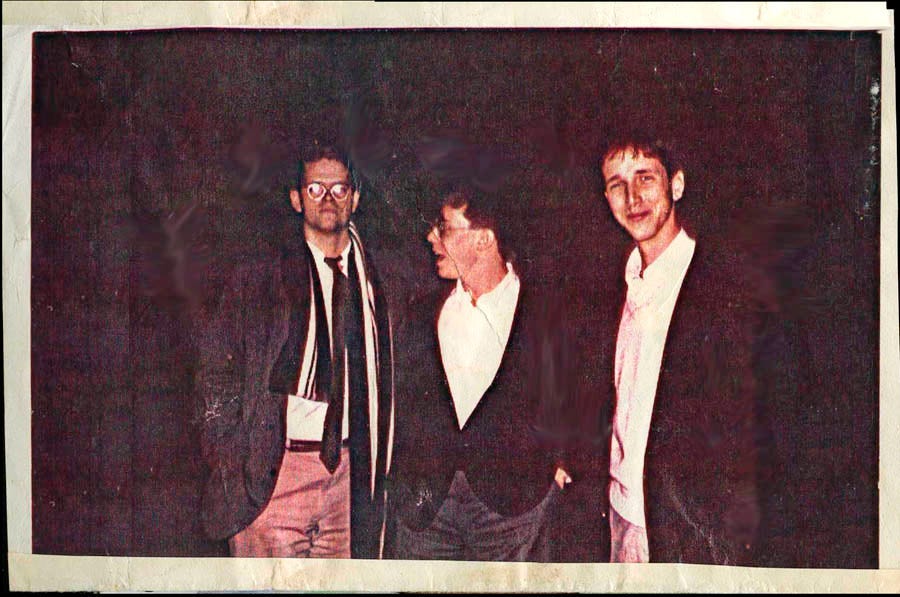Intro
Bennington College… Does that name ring a bell?
Probably not honestly — it’s a tiny school in rural Vermont, where pretty much nothing (ever) happens. How about Camden College though, or maybe Hampden?
If you are into literature (a term hesitantly used, but the shoe does fit), these might strike a chord. They’re fictional versions of Bennington found in the works of Donna Tartt (The Secret History, The Goldfinch) and Bret Easton Ellis (Less than Zero, American Psycho).
Both Tartt and Ellis are pretty heavy hitters in American literature, and their characters and the worlds they have built have tremendous cult followings.
Ellis’s character Patrick Bateman in particular has transcended both page and screen, becoming an enduring meme, birthed in the hellfires of 4Chan’s /lit/ and /tv/ boards.
The cultural relevance doesn’t stop there, however: Tartt’s The Secret History is ground zero for the Tumblr aesthetic Dark Academia, and arguably the entire “aesthetic“ craze in general. TSH explores Bennington College (as Hampden College) through the eyes of Tartt’s self-insert, a Californian with status insecurity thrust into the strange, insular world of the classics majors at Hampden.
Dark Academia as an aesthetic romanticizes, among other things, being locked away in ones own ivory tower, pursuing high-brow-but-pointless studies, autumn, The Dead Poet’s Society, and the city of Edinburgh for whatever reason. Most of the pictures feature a copy of TSH placed conspicuously in-frame.
It’s all a very navel-gazing sort of kitschy “aesthetic“ meant to confer some level of intellectualism upon those that take it up, but it largely misses the mark in that regard.
Still, Dark Academia and American Psycho have had lasting impacts on style, so this review technically falls in-line with what my substack is supposed to be about. A forewarning, however: This is kind of dry nerd gossip nonsense (though it does get salacious a some spots).
Some Backstory
I’m not even really sure how I found this podcast — I’m not a habitual listener to podcasts in the first place, but I enjoyed TSH and consider American Psycho one of the funniest books I’ve ever read, so I thought I’d tune in. I think I read about it in a throwaway tweet recently, else I’d never have known that it existed — I think it largely got swallowed up by covid, and thus didn’t make a huge cultural splash.
It’s important to note that at the time, Bennington College was the most expensive college in the United States in the 80s. Despite that, it wasn’t hard to get into and was kind of a place for rich families to hide their fuck-ups who couldn’t get into the ivy league or a NESCAC school. Culturally, Bennington was one of those tiny (class size of ~150), ultra-crunchy liberal arts schools where you make your own major and everything is pass/fail. Similarly to how one might regard Reed College or maybe Oberlin nowadays.
Because of this, in addition to receiving rich fuck-ups, it also attracted many genuinely talented individuals who were unable or otherwise unwilling to cut it in a traditional school setting. That, combined with a rich cast of professors who were talented artists in their own right, created an atmosphere where creativity could thrive. In other words, it was the place to be for budding writers, who, in the 1970’s and 80’s carried a great deal of cultural cachet, which largely only exists for prestige TV stars or like Twitch streamers or something in our current cultural landscape.
That brings us to the topic of this newsletter: A review of Lili Anolik’s podcast, Once Upon a Time At Bennington College. The podcast itself (which I’m calling OUTAB going forward), published in 2021, is a gossip podcast recounting the times of Bennington’s class of 1986, which included both Bret Easton Ellis and Donna Tartt (who were friends at the time), along with some other influential writers/artists, such as Jonathan Lethem, David Lipsky, and Brixton Smith (the guitarist for The Fall).
Although we’ll get to the podcast shortly, I think it’s worth it to spend a moment on the narrator/producer, Lili Anolik, as it lends some additional context to how the podcast plays out:
Anolik is an editor at Vanity Fair and actually wrote a piece for Esquire (where I’m pulling most of the pictures from), a sort of predecessor to OUTAB. That is, OUTAB follows the same path and includes many of the same anecdotes, but is structured as more of a narrative (instead of a series of quotes) and includes audio from actual interviews.
Anolik does manage to get Bret Easton Ellis on this podcast, but Donna Tartt declined her request for an interview. I couldn’t help but notice that her narrative around Bret, who in his personal life seems to be rather contemptible, was rather forgiving, and her narrative around Donna’s life was scathing, and at points verging on libelous.
I got the feeling that this was almost a punishment of sorts for refusing to give an interview for the podcast on Tartt’s part. I imagine Donna herself felt similarly as she did pursue legal action over the contents of this podcast.
Since producing OUTAB, Lili has written a book called Didion and Babitz, which predictably recounts the lives of Joan Didion and her friend Eve Babitz. Although I haven’t read the book myself, a perusal of the many scathing reviews on Goodreads (and many published reviews echoing the same) leads me to the conclusion that it wasn’t very good, but notably, Lili seems to go out of her way to make Joan Didion look bad, while championing Eve Babitz (whom she had written an earlier book about). This feels rather similar to the juxtaposition of Ellis and Tartt in OUTAB — too charitable with one character and overly punishing with the other.
Additionally, this podcast was ultimately released in 2021, with research being done in the years prior. Although it feels like literal decades ago, the overarching theme of that period of time (aside from covid) was the acme of, for lack of a better phrase, progressive mass hysteria. To be a little more precise here, I’m referring to incidents like the Citibike Karen — mundane, obviously fake stories blown way out of proportion but taken at face-value anyway because they reinforce a certain worldview, etc. I bring this up to say that it also leaks into this podcast, which, looking at it 4 years removed, is very cringe-inducing.
But that’s enough — I think you get the point. Let’s get to the actual review:
A Short Review
The podcast is presented as a dual-narrative, switching back and forth between the lives of Bret Easton Ellis and Donna Tartt, converging on their enrollment at Bennington in 1982, and then diverging as each finds success with the releases of their respective novels, Less Than Zero and The Secret History.
We start off in the world of Bret, an LA rich kid with daddy issues. His dad is a big commercial real estate developer who cheats, abuses drugs and his kids, the whole nine really. Bret attends private school in Sherman Oaks and finds himself enmeshed with the seedier side of Hollywood, which he ultimately becomes fatigued by.
By his senior year, he is already recognized as a writing talent, and has been using inspiration from his surroundings and the people he met as the groundwork for his novel Less Than Zero. He is encouraged to attend Bennington to continue his writing, which he sees as an escape route out of LA, and into that sort of romantic, erudite version of New England that so many people uphold.
His application is allegedly accepted based almost entirely off of some pictures that he drew. No writing samples (allegedly), no SAT scores, just pictures. Crazy to compare that to the amount of hoop-jumping required to get into even a half-decent college these days.
Donna’s story begins from a much different place. She was born in Grenada, Mississippi to her father Don, a gas station owner, and her mother Taylor, a secretary (does this sound familiar?). In addition to writing, she was also a cheerleader, and somewhat popular from what I can tell. She initially enrolled at Ole Miss, where she was a member of KKG, and eventually found herself under the tutelage of writer and professor Willie Morris, who thought her a genius after reading her work.
Morris eventually convinced Tartt to transfer to Bennington, as he thought it would be an environment more conducive to nurturing her talents. She ultimately agreed, and ended up transferring after her sophomore year.
Now that the gang’s all here, things get a little fun. Ellis publishes Less Than Zero in his junior year of college and becomes a sensation overnight. Again, back in the 80’s, writers still had a tremendous amount of cultural cachet, and Ellis’s newfound fame allowed him to become something of a Manhattan bad boy.
OUTAB continues through post-graduation and covers Ellis’s release of The Rules of Attraction and American Psycho (which, along with Less Than Zero form a trilogy of sorts, with familiar casts of characters throughout — Patrick Bateman’s younger brother Sean is one of the protagonists of Rules of Attraction), as well as some of Ellis’s more recent releases like Lunar Shards, as well as his involvement in the “literary brat pack“, a play on the brat pack (Rob Lowe, Molly Ringwald, et al.), which itself was a play on the rat pack (Frank Sinatra’s crew).
Donna on the other hand, ingratiated herself to the eccentric students of the classics department, as well as their professor, Claude Fredericks, an openly gay (very controversial at the time) eccentric autodidact and the owner of Banyan Press.
Donna begins dating one of the students, Paul McGloin, as a means to gain access to their world. Claude Fredericks was known to gatekeep his classics courses so that only men could join.
Simultaneously, the TV series of Brideshead Revisited, an instantaneous hit at Bennington, had just launched, thus laying the groundwork for Tartt’s The Secret History. A mysterious classics department full of ultra-wealthy (?) understudies to a magnanimous and esoteric professor, set in a world between rural Vermont and Oxford College.
From here, Anolik’s narrative gets pretty uncharitable toward Tartt — she goes out of her way to interview people who dislike her, such as Matt Jacobsen and Todd O’Neal, Bunny (who is murdered) and Henry (portrayed as a murderous sociopath) respectively in The Secret History.
Notably, a story about her relationship with Paul McGloin is conveyed as a pederastic one, where Donna, known for her androgynous dress and small stature, plays the role of the boy.
Further accusations, such as her leeching off of Paul for years after graduation, taking real, tragic stories from friends and then using them bar-for-bar in her works, etc. accompanied that.
It seemed so straightforward that Anolik had a bone to pick with Tartt (despite calling her a massive inspiration), that it was hard to discern truth from cherry-picked exaggerations.
Still, the contents of the podcast are juicy in an extremely pretentious way. The OUTAB is about 13 hours long, broken into 14 episodes of ~45 minutes to 1 hour, so if you have some time to kill and care at all about the goings on of some notable writers’ lives from 40 years ago, I’d say it’s worth a listen. Listener be warned, however: it has some of the most obnoxious ads I’ve ever heard sprinkled in throughout — I usually don’t go out of my way to skip ads, but I would consider it a must if you decide to listen.
Rating: 2.5/5





